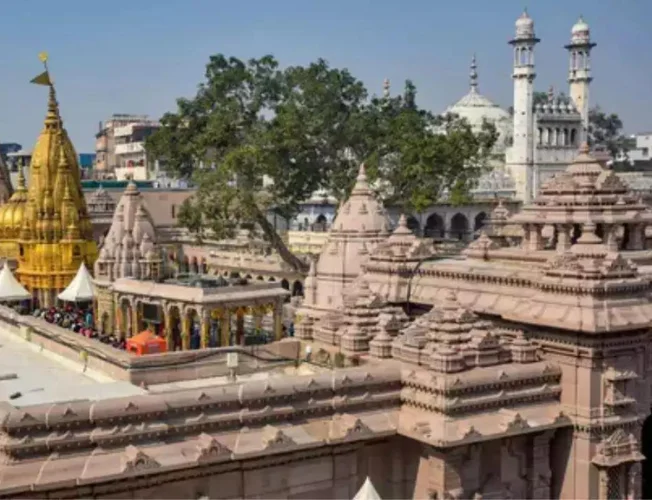Varanasi District Administration Facilitates Compliance
The Varanasi District Administration, on February 1, implemented a court order allowing Hindu devotees to worship within the Gyanvapi mosque complex. This move, however, has ignited controversy, with the Muslim side intending to challenge the decision in the Allahabad High Court.
Devotees Perform Pooja Inside Gyanvapi Mosque Complex
In accordance with the Varanasi Court’s order, barricades at the Vyas Ka Tehkhana (basement) of the mosque were opened, and a pooja (worship) ceremony was conducted early in the morning. The decision to permit Hindu worship within the Gyanvapi mosque complex comes at a time when tensions and legal battles persist over the site.
Muslim Side Plans Legal Challenge
Expressing discontent, the Muslim side, represented by lawyers Akhlaq Ahmed and Merajuddin Siddiqui, declared their intention to approach the Allahabad High Court to challenge the Varanasi Court’s ruling. They argue that the order overlooks key reports and historical decisions in favor of the Muslim side.
Legal Perspectives and Historical Claims
Lawyer Akhlaq Ahmed emphasized that the order neglected the Advocate Commissioner’s 2022 report, the Archaeological Survey of India’s (ASI) findings, and a 1937 decision that favored the Muslim side. Siddiqui highlighted the absence of evidence supporting Hindu prayers at the site before 1993, asserting that the order lacked a strong legal foundation.
Varanasi Court’s Decision and Future Developments
The Varanasi court’s decision allows Hindu devotees to offer prayers specifically in the ‘Vyas Ka Tekhana’ area of the Gyanvapi mosque complex. Advocate Vishnu Shankar Jain, representing the Hindu side, stated that the worship would commence within seven days, with arrangements to be made by the district administration.
Controversial History and Disputed Claims
The Gyanvapi mosque complex has been a focal point of historical and religious contention, with claims of a pre-existing Hindu temple and legal battles between the two communities. The recent court decision has reignited debates surrounding religious sites and communal harmony.
Conclusion
As the legal battle unfolds, the Gyanvapi mosque controversy underscores the delicate balance between religious freedom, historical claims, and legal interpretations, sparking discussions on the broader implications for communal relations in India.
Read more.. Marketing News, Advertising News, PR and Finance News, Digital News.





